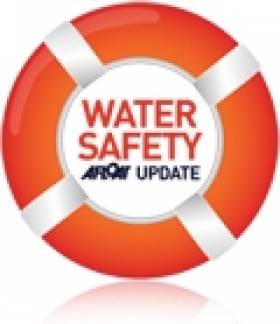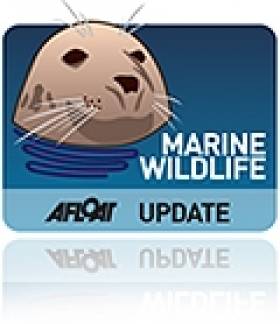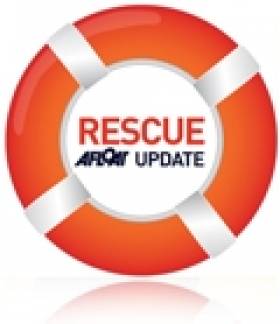Displaying items by tag: Beach
This Friday Last Day for 2012 Fingal Lifeguard Applicants
#WATER SAFETY - This coming Friday 30 March is the closing date for applications for Fingal County Council beach lifeguards for the 2012 summer season.
Lifeguard cover will be provided on Fingal beaches on weekdays and weekends 11am to 7pm from 2 July till the last week of August, depending on weather and staff levels.
Beaches and bathing places scheduled to be guarded this summer include Balbriggan (front beach), Skerries South, Loughskinny, Rush North and South Shores, Portrane (Tower Bay and The Brook), Donabate, Malahide, Portmarnock, Sutton (Burrow Road) and Howth (Claremount).
Applicants must be not less than 17 years of age on 1 May 2012. Application forms are available to download HERE.
Concerns Over Seal Deaths in Donegal
Seven dead seals washed up in Donegal are believed to have died of natural causes - but concerns over a pattern of seal deaths nationwide remain.
As the Donegal Democrat reports, the seven grey seals - which are a protected species - were found beached along with a dead dolphin in the Rosberg area.
A ranger with the National Parks and Wildlife Service confirmed that none of the marine animals had been shot.
But Pauline Beades of the Irish Seal Sanctuary said the find was just one in a series of reports of "strange" seal deaths around the country.
“You don’t find three, four, five animals dead on a beach," she said. "I would be very concerned that this is not a normal occurrence.”
It is not yet known if a post-mortem will be carried out in the dead seals, but members of the public are encouraged to report any similar finds as the thocine distemper virus has been responsible for seal deaths in the past.
Beades said that grey seals are now having their young, and asked the public to keep an eye out for seal pups and report anything that looks suspicious in the area.
The Donegal Democrat has more on the story HERE.
Lifeguarding in Ireland
It might be hard to believe it but there is plenty of work here in Ireland for the professional lifeguard, from working in a leisure centre swimming pool, to the beautiful beaches around the coast and a beach lifeguard is needed to attain a surf coach qualification according to Muirtí Ó Cearnaigh of Atlantic Coast Lifeguards.
There are slight variations in the qualifications and experience needed to work in both these industries. A lot of people think a lifeguard is a person who is there to save lifes in the event of an accident happening but in actual fact they are there to prevent the incident happening in the first instance. With this they learn about every hazard and risk that is in their particular enviroment and the prevention methods needed to provide safety to the public.
They also learn techniques needed in the event of of actually preforming a rescue, which will include the use of communication with public and casualty, working in a team enviroment, rescue equipment, how to work well with other emergency services, life support, first aid and also train hard in terms of personal fitness.
When you are deciding whether to become a pool lifeguard or beach lifeguard, it really depends on your personal swimming abilty, a pool is a closed enviroment so there is minimum swimming required, where as the beach is a open enviroment so a strong fitness level in swimming is required.
There are two organisations in Ireland in which you can turn to to aquire the certification needed to work in either industry. Institute of Qualified Lifeguards Ireland (Lifeguards Ireland) which receive certification form Royal lifesaving soceity which is endoresed by the international lifesaving federation. And Irish Water Safety which have a very strong youth training programme set out in most counties.
When looking for certification look for out the (NPLQ) National Pool Lifeguard Qualification or (NBLQ) National Beach Lifeguard Qualification, you can find full information on both of these on www.atlanticcoastlifeguards.com where you can also find up and coming courses and any pre requisits needed for each.
Also check out www.lifeguardsireland.com & www.iws.ie for information on other lifesaving or lifeguarding courses nationwide.
Reasons why we think you will want to become a lifeguard:
• First and foremost you are providing an amazing public service. You will without a doubt make people feel confident, happier and safer just by being on the poolside and you could potentially save a life.
• Being a lifeguard offers a fantastic foundation to a career in the leisure industry. Many senior managers began their rise to leisure stardom by lifeguarding at their local pools
• The opportunity to get fit. Not only will you have to have a basic level of fitness to become a lifeguard but you will be encouraged to stay fit and get fitter. Many pools will give their lifeguards discounted or even free memberships.
• You get to work with a team of young like minded people, so there's plenty of opportunity to increase your social circle!
• The hours are flexible and perfect for those of you who need to fit studying into your busy days
• If you're a competitive type there is plenty of opportunity to show off your lifeguarding talents in events like the National Pool Lifeguard Championships (team event) and the Lifeguard Triathlon
• If you find you really enjoy lifeguarding you can take it up as a competitive sport and compete regularly for your local club.
• Lastly but still very importantly, you will gain a life skill that will come in handy for the rest of your life.


























































